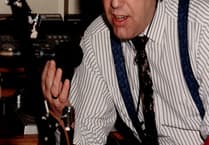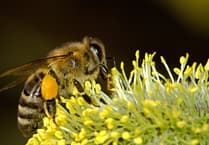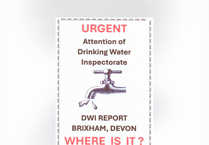‘Healthcare’ is a neologism – a new word. And a surgical boss of mine said he was taught that the use of an invented word was often a first sign of madness.
We know what health means, so often blurred with words like ‘wellbeing’, but we need to examine what ‘care’ might mean. If the editors agree, I intend to write a series about OUR NHS over the coming weeks given the clearest evidence of a crisis within it in every part of the UK.
So that the reader can know that I have the authority of qualification and deep experience to write on this, my bona fides - ‘good faith’/sincerity, need an outline.
Aged 12 and as a boarder at Shaftesbury Grammar School 1951-8, I read a little book by Dr Albert Schweitzer MD about his work at Lambarene on the Congo River. This extraordinary and truly Christian man had been awarded four MDs – in music, theology, philosophy and medicine. He loved and played Bach on the organ, which instrument he was also adept at repairing!
This book gave me the spark for medicine. But I also considered forestry, civil engineering and the merchant marine. The latter no doubt because my father’s grandfather had been under sail round Cape Horn, and was later a Senior Pilot on the Mersey with a brother.
But medicine it was to be. I recall my parents’ concern for this choice; they feared for its cost with three younger siblings and the fight for survival of a business in the austerity of a bankrupted Britain owing billions to the US out of two disastrous world wars. Their fears were never realised because Dorset County Council paid for my medical school education over those six years after the award of a County Major Scholarship.
I can easily recall the empty nervousness as I had an early breakfast with a wonderful headmaster, John Brett, who was to drive me to Semley Station for the interview at St Mary’s, Paddington. He had lost his left eye and some of his face in a tank at Normandy. His dedication to teaching and leading was typical of the masters at that unembellished school.
The medical school secretary and a senior opthalmic surgeon interviewed the green lad from Hardy’s Dorset. ‘What books are you currently reading?’ ‘Turn of the Tide’ - WW2 by Alan Brooke and ‘I Bought a Mountain’ by a de-mobbed army officer choosing the peace and challenge of a Welsh mountain sheep farm. And I played rugby football which helped at St Mary’s. But not after an intelligence test!
I could not have been more fortunate in coming to a few hundred yards of the station, having not been selected previously at Guys. The medical school was small with annual intakes of 60-plus, and unusually then with equal numbers of women and men.
Our pre-clinical education in anatomy, physiology and biochemistry took place on one side, and across the road for ambulances we saw the patients, nurses and doctors. Our purposes were clear and there was the strongest family feeling.
My memories are many, for instance of concerts in the library when I helped with the lighting. Filled with all categories listening to the finest soloists – piano, harpsichord, guitar – Julian Bream. Sublime it was, underlining a striving for beauty and excellence. And sport was also there to keep us fit in mind and body. Almost all of the 300 medical students were out on the Saturday playing in teams, half being at the excellent grounds the medical school had at Teddington. Our teaching, both in pre-clinical and clinical realms, was of the best and often inspiring.
On qualification in 1964 I was fortunate to be posted as House Physician, with another, to the Medical Unit under Professor Stanley Peart.
I loved medicine but liked using my hands, so decided to be a surgeon. I spent 11 years in my surgical training, five of those being in general surgery.
I decided to focus on orthopaedic and trauma surgery so moved sideways from general surgery at the old RD&E in Southernhay in 1970 to the Princess Elizabeth Orthopaedic Hospital at Buckerell Bore at Wonford. There, at that world-renowned hospital with its best esprit de corps, I learned the trade which I was to serve in as a consultant from 1975 at Torbay and at the ‘Princess’.
There was a team of most excellent surgeons at the ‘Princess’. Pre-eminent was Freddie Durbin, my main mentor, who was born in that beautiful village in East Devon, Farway. He was a leader and cared so deeply for the service from the time of his appointment in 1947.
I have had the privilege and joy of healing thousands of my fellow citizens since then, with good teams by my side.
I have no regrets but say boldly and with all evidence that I have seen a service so fine in concept and reality kicked mercilessly around. A political football for ever, as we the foot soldiers of all grades and types did our best to keep the show on the road.
As I have already written here previously, we will judge the influence of the ‘political class’ on the basis of my maxim - ‘to care is the most important characteristic of any worthwhile society.’
I will define after diagnosis the cause of the deepest illness, and then with hope in my heart, tell how we can rebuild, and with stronger foundations.
The concept of OUR NHS is a simple one, and Mosaic at root. ‘Love thy neighbour’.



-Beaver-Trust.jpeg?width=209&height=140&crop=209:145,smart&quality=75)

Comments
This article has no comments yet. Be the first to leave a comment.